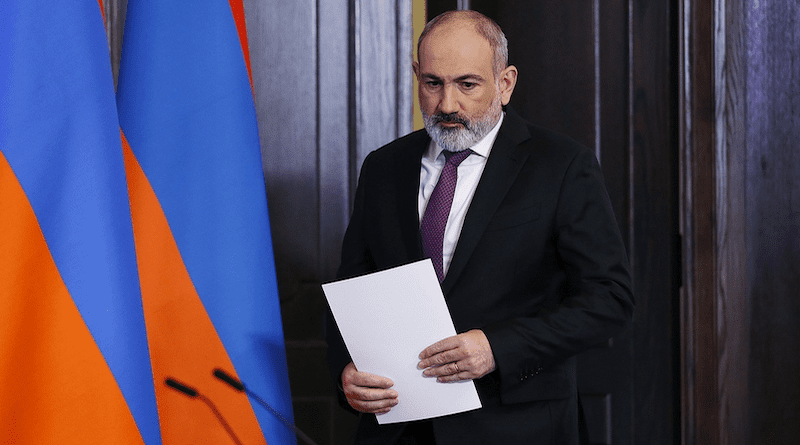Armenia: Prime Minister Calls For New Constitution
By RFE RL
(RFE/RL) — Prime Minister Nikol Pashinian says Armenia needs an entirely new constitution rather than a constitutional reform to ensure his country’s democratic “legitimacy” and viability.
Pashinian told a meeting at the Justice Ministry on January 19 that the next constitution should make Armenia “more competitive and viable in the new geopolitical conditions.”
“The Republic of Armenia must have a constitution voted by the people of the Republic of Armenia, which should not give rise to doubts, this is also an important emphasis on legitimacy,” he added.
Pashinian said the new constitution must be put to a vote by the public “so that there will be no doubts” about its authority, though he didn’t offer a time frame for drafting and adopting a new constitution.
The prime minister added that he supported the parliamentary system of government, deeming it “the most appropriate” for Armenia.
His comments come a day after Armenia updated a European Union delegation on its constitutional review process.
The Armenian Constitution was adopted in 1995 and amended twice in 2005 and 2015. Following the second amendment, the country moved from a semipresidential to a parliamentary form of governance.
In 2021, Pashinian, a liberal opposition leader who rose to lead the country on the back of a 2018 revolution that ousted the former ruling elite, formed the Council for Constitutional Reforms, which has sought to improve the parliamentary system.
His popularity has taken major hits in recent years, in large part because of the loss to Azerbaijan in the 2020 Second Nagorno-Karabakh War and the subsequent Azerbaijani military retaking of Karabakh in 2023. Still, he remains more popular than the opposition.
Yerevan and Baku have expressed a desire to settle their decades-long conflict and take steps toward normalizing relations, though recent comments by Azerbaijani President Ilham Aliyev have raised questions in Armenia about the fate of the negotiations.
Under Pashinian, and especially after the devastating losses to Azerbaijan, Armenia has gradually distanced itself from its traditional ally Russia and moved closer to the West.
On January 19, the prime minister hosted Javier Colomina, the NATO secretary-general’s special representative for the Caucasus and Central Asia.

